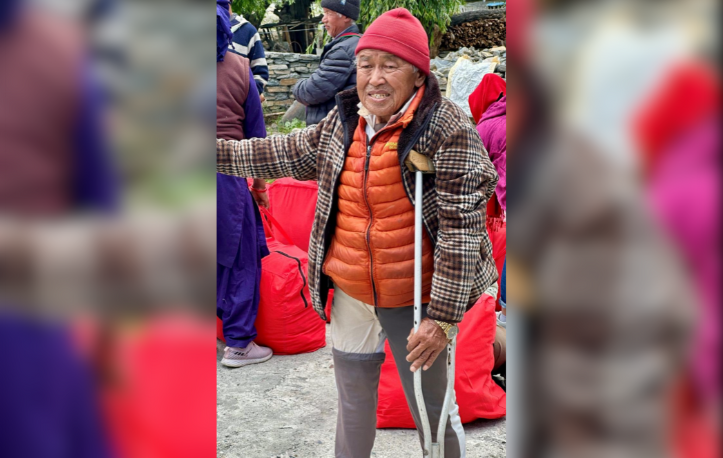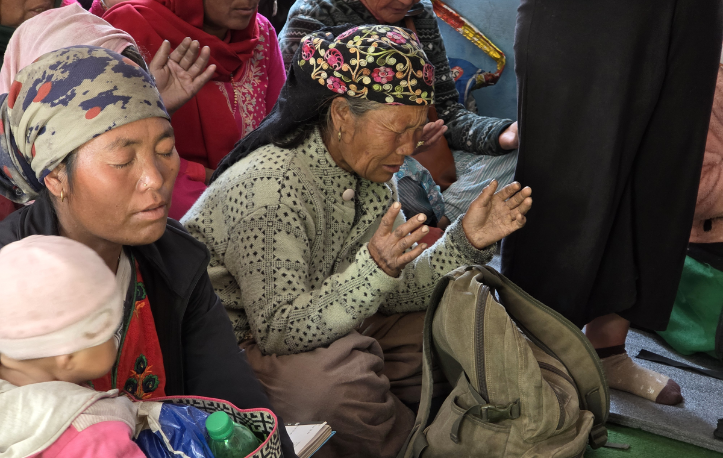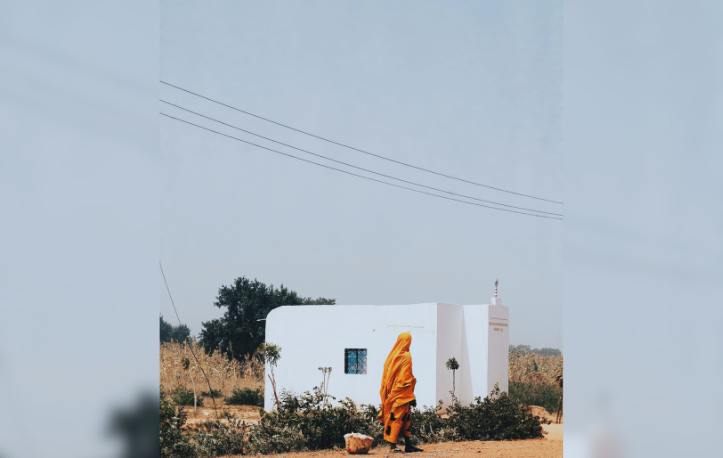In more than 25 years of ministry, a Christian couple in Vietnam have faced persecution for their faith as well as serious health problems, but nothing can stop them from proclaiming the Good News of Christ among the country’s ethnic minorities.
Binh and Thanh were not the most likely candidates to serve the indigenous people groups of Vietnam’s Central Highlands. They were city people, had a city education, and were accustomed to city conveniences that do not exist in the remote villages.
Growing up, neither Binh nor Thanh imagined a life in Christian ministry. Though raised in a Christian family, Binh was an angry young man at the age of 19, drinking too much and getting into frequent fights. But after having a dream about Christ, Binh recommitted to following Him faithfully.
Two years later, Binh met Thanh in a Christian youth group, and after marrying they dedicated their lives to serving the Lord as partners in ministry. While Binh was at Bible college, he shared his lessons with Thanh each evening after returning home from classes. Later, when police summoned Binh to headquarters for questioning about his Christian faith and biblical studies, Thanh accompanied him, sharing in the beatings and humiliation he suffered.
“We offered our whole lives for ministry,” Thanh said. “We studied the Bible together, we worked together, so we were also beaten together.” Then, in 1997, the Lord led the young couple to proclaim the gospel among tribal groups in the Central Highlands, one of the most geographically isolated and challenging areas of the country.
Many communities in this area are impoverished, with poorly developed roads and only rudimentary utility services. Authorities are also wary of outside influences in the region, accusing foreign-based dissident groups of supporting violent attacks against the government.
Having begun their Christian faith and ministry within youth groups, the couple’s first instinct was to reach out to other young people. They were saddened to see how youth were influenced by pressure from local authorities. When confronted with the dilemma of renouncing their faith or being forced out of school, many stopped attending church. Some even avoided speaking to Binh and Thanh for fear that teachers and school administrators would associate them with Christians.
Binh and Thanh pressed on and many faithful young people wanted to see the church thrive. As the church grew, however, so did persecution. “Many times when we were having the worship service together, the police came and brought all of us to the police station,” Binh said. Those who didn’t recant their faith in Christ were fined.
Since the church members were mostly students with little money, Binh and Thanh sold their personal belongings, even their rice, to help pay the fines. Binh worked off the remainder of the debt by doing menial labour for the government.
The couple quickly realised they needed a new approach to ministry. Communist authorities in Vietnam are generally sceptical of Christian evangelism, and the heightened security and scrutiny in the Central Highlands required them to be especially careful.
“We could not go as Bible teachers, because we would be threatened,” Thanh said. “Instead, we went as business people.” Their cover provided opportunities to build relationships and share the gospel — teaching, training and encouraging believers.
“We could not invite people to our house, and we couldn’t have a [fixed] meeting place,” Thanh said. “Instead, my husband and I went to other believers’ houses. We would have two people stay out the front to watch for the police and pray, while the rest would stay in the house and learn the Bible.” As the church grew to 150 members, Thanh said they began training new leaders to go into other villages and start new churches.
Today, they lead a team of 25 evangelists working with ten different tribal groups in three provinces. But the evangelists that Binh and Thanh have trained are now facing more persecution than the couple faced as young missionaries.
One of the most challenging changes has been the government’s new approach to persecution. “The government realised that persecution in the form of beatings doesn’t work,” Binh said, “so they changed how they persecute Christians.”
Authorities now coerce Christians to leave the faith by depriving them of essential needs and privileges. Binh said he knew of an older Christian who, after working for the government for many years, lost his pension because of his faith in Christ. When authorities learned of the man’s Christian faith, they threatened to withhold his pension unless he renounced Christ. He chose Christ and lost his livelihood.
Other ethnic-minority Christians have lost social support, medical care, land grants and educational opportunities. In impoverished communities like those in the Central Highlands, these deprivations can be a matter of life and death. Still, Binh said, their love for Christ enables them to persevere in the faith.
“When I teach them the Bible,” Binh said, “I always encourage them that whatever happens to each of us is in God’s control, and God is our hope. We just commit everything to God and wait for His answers.” They have seen God provide answers in a variety of ways.
Christians in other parts of Vietnam have provided help for their brothers and sisters who have lost much because of their faith in Christ. Government restrictions have eased somewhat to allow ministry work in the area.
“[They see that] when the Word of God touches people’s hearts, they have a better life and do not make trouble for the government,” Binh said.
In 2011, Thanh received a cancer diagnosis that led to multiple surgeries, diffcult treatments and months of hospitalisation. But being stuck in a hospital did not stop Thanh from sharing the gospel. She estimates that she helped lead more than 100 people to Christ during her treatments.
Thanh can’t travel as often or as far with her husband now, but they still regard their ministry work as a joint calling. Although Binh travels alone into the mountains for in-person training, they both participate in online discipleship. Thanh, with Binh beside her, still conducts prayer and worship services in the hospital, connecting newly discharged patients with churches near their homes.
“Please pray for us so we continue our calling,” Binh said. “Pray that God provides for us and our workers as we continue to evangelise. Pray for the government to see the power of God.”




Submit a Prayer